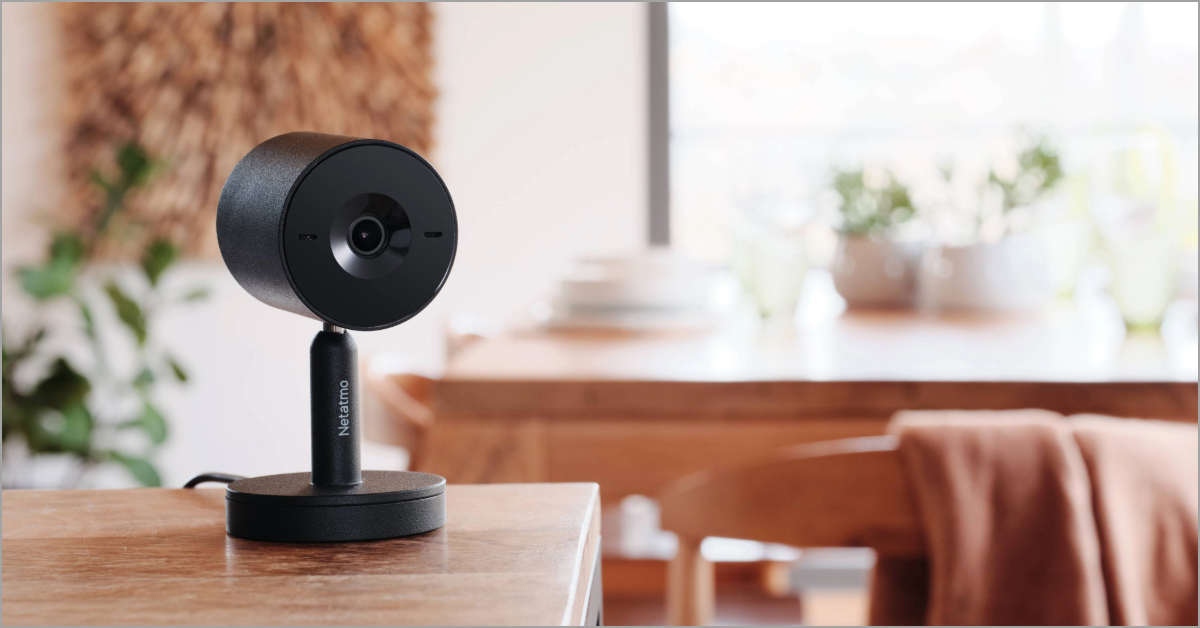
New Indoor Camera Advance
Music, work, car horns... we're used to hearing all kinds of sounds in our environment at all times of day. Yes, but... high levels of noise can cause stress and daily discomfort that can affect our health and cause damage to the ear. So to best protect ourselves, we need to understand how sound is measured and what levels can be a real risk to us. Let’s take a look at what the decibel scale is and how it can be used to limit your exposure to noise and preserve your hearing!

The decibel scale is a relative unit of measurement that's used to measure the amount of sound in a given environment. This tool uses the decibel (dB) as its unit of measurement to rate noise according to its sound pressure, i.e. its intensity (from the lowest intensity to the highest intensity).The decibel is a relative unit of measurement equal to one tenth of a bel. It expresses the ratio of two values of a power or root-power quantity on a logarithmic scale and is named after its inventor Alexander Graham Bell.
Sound and noise are the same thing: vibrations in the air that are perceived by our ears, more precisely our eardrums, and then transmitted to our brain. However, what characterises noise is the discomfort it causes when perceived. So it's an unpleasant sound that can even be dangerous to health and even cause hearing loss depending on its intensity and frequency.
It should also be noted that our eardrums are not receptive to all vibrations. If the sound pressure is less than 20 hertz (Hz) then the sound produced is not audible to the human ear. This is called infrasound. In the same way, a sound higher than 2,000 Hz is not perceptible: it is an ultrasound.
In general, several factors are involved in determining the maximum safe sound level: the frequency and duration of the sound, its intensity and so on. Nevertheless, organisations such as the WHO have set limits to prevent the risks of noise to health.
The noise limit also depends on the legislation in force in each country. In the UK, members of the public can report noise from business premises (garages, workshops using power tools, bars and restaurants playing music, etc.) to their local council, which may then use a sound level meter to measure the sound at different times of the day or night. It will log these measurements and use them to decide if a business is being excessively noisy.
The A-weighted decibel is the unit that expresses the relative loudness of sounds as perceived by the human ear. A-weighting gives more value to frequencies in the middle of human hearing and less value to frequencies at the edges as compared to a flat audio decibel measurement. A-weighting is the standard for determining hearing damage and noise pollution. A-weighting is the most common, but other weighting systems exist. For instance, in the UK, the permitted noise level at night is 34 dBA if the underlying level of noise is no more than 24 dBA, or 10 dBA above the underlying level of noise if this is more than 24 dBA. If businesses do not comply with the regulations, they may incur penalties and/or fines.
Exposure to sound levels above 85 decibels (dB) for an extended period of time can cause hearing damage. Sound levels above 100 dB can cause hearing loss within minutes. Bear in mind that noise levels are often measured in A-weighted decibels (dBA) to account for the sensitivity of the human ear to different sound frequencies.
There are a few main hearing disorders that can occur as a result of being exposed too often to loud sounds:
Noise pollution can have a direct effect on an individual's stress level. Indeed, while we can get used to a certain level of sound in everyday life, unpredictable or persistent loud noises can be extremely annoying, and can be a contributing factor to ill health. Noise can cause stress in various ways, for instance if someone works in a noisy environment or suffers from noise pollution in their neighbourhood. Loud and/or repeated noise pollution can also cause anxiety, irritation, annoyance, distraction and difficulty concentrating, especially in noisy work environments or crowded public spaces.
Noise can also affect sleep quality. In particular, it leads to:
This deterioration in sleep quality can also affect the behaviour of the person exposed to unwanted levels of sound, causing the following:
Acoustic insulation: In the office or at home, soundproofing must be used to ensure the comfort of all those who use the premises. So it’s important to invest in effective insulation, double glazing, etc.
Hearing protection: Using earplugs can reduce noise and protect your ear canal to guard against hearing loss, especially at concerts where the sound can exceed 100 or 110 dB(A). It’s also recommended that you set your music volume to half of the maximum volume and don’t increase it even if the environment you are in becomes noisier. At concerts, make sure you don’t get too close to the speakers, which can be too loud and dangerous for your ears!
Sound level measurement: To measure ambient sound, you can use a sound level meter. This type of device is useful for individuals, occupational medicine, the construction industry and any other organisation or place exposed to noise. Sound level meters are used to check whether the ambient noise exceeds the standards in force and can be reported.
Have a hearing test if you are worried or have been exposed to noise for a prolonged period: If you feel continuous discomfort, are in pain or have been exposed to loud sounds, don’t hesitate to consult an ENT specialist.